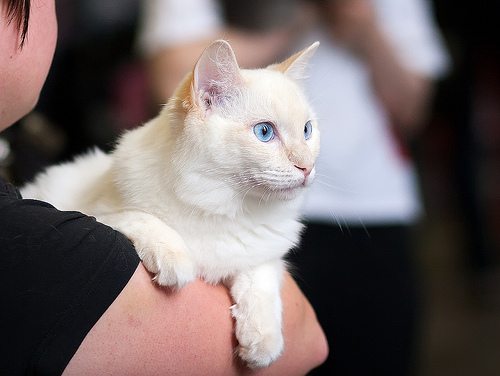Periodontal (dental) disease is the most common infectious disease in dogs and cats. More than 80% of dogs and cats between the ages  of one and three have some evidence of periodontal disease that requires some form of treatment. Teeth should be white and the gums should be pink unless they are pigmented due to specific breeds like Chows, for example. All pets have some sort of noticeable odor to their breath, however pets with periodontal disease have noticeably disagreeable odors from months or years of decay.
of one and three have some evidence of periodontal disease that requires some form of treatment. Teeth should be white and the gums should be pink unless they are pigmented due to specific breeds like Chows, for example. All pets have some sort of noticeable odor to their breath, however pets with periodontal disease have noticeably disagreeable odors from months or years of decay.
Bacteria and plaque on the teeth cause periodontal disease. Over time, plaque hardens and becomes the yellow-brown tartar commonly seen on our pet’s teeth. When the bacteria and plaque accumulate, toxins are produced that destroy the teeth and gums. There can be a severe deterioration and destruction of the oral tissues of the jaw including:
- Foul breath
- Loose teeth
- Excess tartar
- Bleeding gums
- Inflamed and reddened gums
- Pus coming from the tooth sockets
- Gingivitis – a painful condition of the gums
The effects of periodontal disease are felt throughout the entire body and are actually the main source of infection and inflammation. Pets with dirty, infected teeth must be treated to eliminate chronic sources of infection and inflammation that can cause harm within the body. It is quite common to see a positive change in your pet once a proper teeth cleaning has been done under anesthesia. Most pets act ‘young again’ as a result of decreased pain and infection.
Every time a dog or cat inhales, it is inhaling bacteria and toxins into the lungs. When a pet swallows, it is swallowing bacteria and toxins into its stomach and intestines. Bacteria and toxins enter the bloodstream every time your pet eats food. Over time, these bacteria and toxins cause heart, liver, kidney and gastrointestinal disease or organ failure. These health problems can become more severe as the pet ages due to chronic infection and stimulation of the immune system.
Treatment of oral infections is essential for preventing early death from these devastating diseases and for releiving the pain from any kind of dental infection. Of course, treatment depends upon the severity of the disease. For more pets, an annual dental cleaning will do the trick. Smaller breeds may require two dental cleanings per year.
It is no coincidence that pets with heart disease also have periodontal disease. If it is left untreated, periodontal disease can cause a heart infection that is life threatening and very difficult to treat, not to mention very expensive. Any pet dealing with any kind of heart disease should have their teeth cleaned annually.
Many of us may worry more about the anesthesia required in dental cleanings; however modern techniques have improved significantly and are quite safe, especially for older pets. Every pet should have a thorough examination first to determine if there is any reason why they would not do well with a teeth cleaning. Regular brushing done by the owner is another option to decrease the number of treatments required each year. There are veterinary dental products that slow down the return of periodontal disease, and most pets can be easily trained to accept having their teeth brushed.
Reviewed and approved by Dr. David L. Roberts, DVM
Photo: Courtesy of Tomi Tapio









